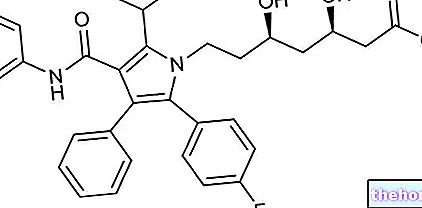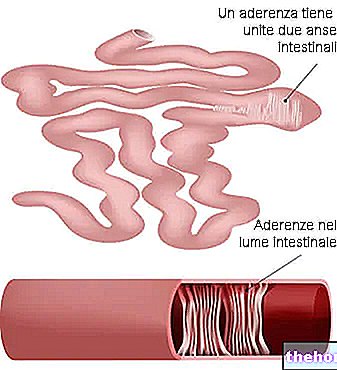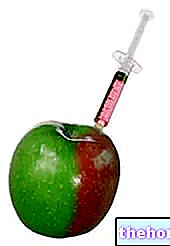Premise
The following indications are for informational purposes EXCLUSIVELY and are not intended to replace the opinion of professionals such as a doctor, nutritionist or dietician, whose intervention is necessary for the prescription and composition of PERSONALIZED food therapies.
Metabolic syndrome

The metabolic syndrome is closely related and consists of:
- Overweight (BMI> 24.9), obesity (BMI> 30.0) and visceral obesity, with an abdominal circumference greater than 88cm in women and 102cm in men
- Alteration of glucose metabolism, with fasting glucose greater than 110mg / dl
- Alteration of lipid metabolism:
- Hypercholesterolemia with total cholesterol> 200mg / dl, HDL <40mg / dl in humans and 160mg / dl
- Hypertriglyceridemia with triglycerides> 150mg / dl
- Alteration (increase) in blood pressure with levels> 85 / 135mmHg.
In the case of metabolic syndrome, various comorbidities are frequently observed, such as: fatty hepatic steatosis, hyperuricemia (in predisposed subjects), biliary lithiasis, kidney stones (in predisposed subjects), gastroesophageal disorders (gastroesophageal reflux, hiatal hernia, etc.), symptoms of intestinal alteration (irritable colon) etc.
The diagnosis of metabolic syndrome is rather complex since it subordinates to the single metabolic alterations mentioned above and, to obtain a positivity to the metabolic syndrome proper, it is necessary that at least 3 of the 4 risk factors mentioned above be confirmed.
Diet for metabolic syndrome
The first intervention in the fight against the metabolic syndrome is the diet associated with physical activity.
The diet for the metabolic syndrome is aimed at restoring general homeostasis; to achieve this goal, it is first of all necessary to carry out a useful and effective weight loss on the metabolic parameters, reducing fat mass and (possibly) toning / hypertrophying the lean one. diet for metabolic syndrome must have some very specific characteristics; summarizing them:
- Hypo-caloricity, about 70% of the kcal necessary to maintain weight: this should allow for a weight loss NOT less than 3kg / month
- Moderation of all servings and the glycemic load of meals (moderation of the insulin peak)
- Nutritional balance:
- Lipids at 25% of the TOT kcal, mainly unsaturated and which guarantee the supply of essential fatty acids at the expense of saturated ones
- Proteins from 0.75 to 1.2g / kg of desirable physiological weight with a high biological value
- TOT carbohydrates for the remaining 55-60%, with an intake of sucrose that does NOT exceed 10% of the total energy and that of simple sugars that remains between 10-16%
- Abolition of alcohol or limitation to ½ or one alcohol unit per day - ONLY from red wine
- Supply of all vitamins and minerals in the recommended rations
- Supply of at least 30g / day of dietary fiber (modulator of the absorption of fats and sugars, regulator of intestinal peristalsis, satiating and prebiotic)
- Supply of cholesterol < 200mg / dl
- Significant supply of foods rich in antioxidants, phytosterols, lecithin and other molecules useful for the body
- Predilection for foods containing medium-low carbohydrates glycemic INDEX (moderation of the insulin peak)
- Predilection for foods rich in essential fatty acids of the family ω ‰ 3 and ω ‰ 6 (they reduce triglycerides in the blood, have a "positive action on cholesterol, reduce blood pressure, and if taken in the right ratio they thin the blood and are anti- inflammatory, etc.)
- Elimination of added table salt and limitation of stored foods
- Increase in raw, unprocessed foods, especially those with a high potassium and magnesium content
- Elimination of sweet foods.
Useful dietary supplements for metabolic syndrome
The supplements useful to the diet for the metabolic syndrome are ALL those aimed at individual metabolic alterations:
- Viscous fiber, if the minimum intake of 30g / day is not reached (moderator of the glycemic index, cholesterol chelator, preserves the integrity of the intestine, etc.)
- Essential fatty acids of the ω3 family (lower blood pressure, thin the blood, lower triglycerides, etc.)
- Lecithin (reduces the absorption of cholesterol and improves its metabolism)
- Phytosterols (reduce the absorption of cholesterol)
- Arginine amino acid (optimizes blood pressure)
- Potassium and magnesium (potassium optimizes blood pressure and magnesium is a powerful alkalizer)
- Polyphenols (reduce the oxidative stress of lipoproteins and determine their better efficiency)
Example Diet against the Metabolic Syndrome
Retired, former pastry chef, she has left coxofemoral arthrosis and suffering of the spine concentrated in the lumbar segment (thinning of the discs, protrusions, etc.) which prevents her from "physical activity. She is obese, has an abdominal circumference> 88cm and from the point of view metabolic shows: tendency to hypercholesterolemia (330mg / dl), tendency to hypertriglyceridemia (170mg / dl), blood pressure changes (with maximum peaks up to 170mm / Hg), tendency to kidney stones, type 2 diabetes mellitus (glycaemia fasting of 130mg / dl).
* Coefficient lower than that indicated and corresponding to the age group of 75 years, since the subject is almost totally infirm.
Example Diet Against Metabolic Syndrome - Day 1
Example Diet Against Metabolic Syndrome - Day 2
Example Diet Against Metabolic Syndrome - Day 3
Example Diet Against Metabolic Syndrome - Day 4
Example Diet Against Metabolic Syndrome - Day 5
Example Diet Against Metabolic Syndrome - Day 6
Example Diet Against Metabolic Syndrome - Day 7




























